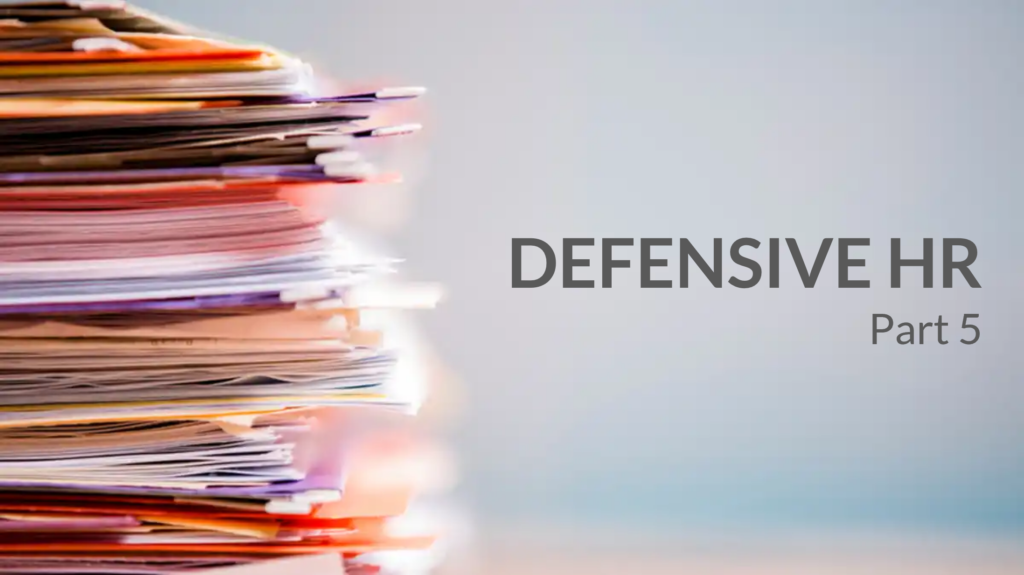Defensive HR – Retaining Employment Records

Retaining Employment Records
When it comes to protecting your business from lawsuits, claims and settlement demands, it is critical that you maintain accurate payroll and employment records for your employees. Reducing the potential for claims and lawsuits against your business is dependent upon your ability to demonstrate your compliance unequivocally.
Let’s take a look at some simple ways you can ensure your ability to defend against unwanted employment claims against your business.
There are several federal and state laws that govern retention of employment records. Employers must ensure that all records are maintained, either in hard copy or electronically, for the minimum period of time required.
Payroll Records
In California, payroll records showing employees daily and weekly hours worked, wages paid, overtime hours and pay, meal break penalties paid, and salary or hourly rate of pay must be shown on the wage statement, or pay stub. Copies of these records should be maintained no less than a period of three years.
Employee Time Records
Wage and hour lawsuits can reach back 4 years. Employers must maintain digital or hard copy records of start and stop times and meal periods taken. The system with which these records are created must be accurate and not show that the employer made unapproved edits. A comprehensive electronic time system is critical to create and maintain accurate records.
Employment Records
Employment records such as pre-employment, hiring documentation and employment actions, employment changes, and employee management records such as performance or disciplinary documentation, should be kept for a period of 4 years. Employees may request a copy of their employee file at any time. Be sure only what is necessary is in this file.
Storing Employment Records
Employers should not rely upon their payroll company to retain copies of these documents. First, the obligation falls on the employer do retain these, and many payroll companies do not necessarily save this information for the necessary time period. Second, if the business changes payroll companies, it may be difficult to access the payroll information from the former payroll company. Employee files should be stored in a secure location and be kept strictly confidential. Access should be restricted to those with a legitimate need to know or as required by law.
Document Destruction
Once an employer has fulfilled the requirements to retain employment records, an effective document disposal plan must be implemented and adhered to. Simply tossing employment records in the trash is not an effective plan. Suggested employers retain records for the appropriate time, then proceed to shred and dispose the documents properly.
Finally, be sure those who are in charge of retaining time, payroll and employment records are trained properly and that all records are kept confidential.
If you have any questions about how to ensure you are being compliant with regards to record keeping, don’t hesitate to reach out to the HR pros at Infinium HR
Download our Handy Records Retention Guide
Use this guide to train responsible staff
